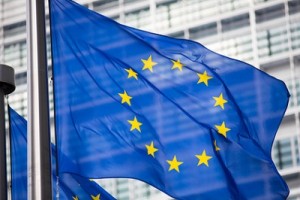The members of the Global Coalition for Social Protection Floors are convinced that, with global and regional support that social protection floors must be implemented in particular at the national and the local level. They must be implemented in all countries, in least ‐ developed and developing countries, in landlocked countries, in island countries, in middle ‐ income countries and in developed countries. No one should be left behind.
Here you can find the full version of the statement written by the Global Coalition for Social Protection Floors.
A newly established web platform on Social Protection and Human Rights (www.socialprotection-humanrights.org) is now available: it brings together various resources relevant to a rights-based approach to social protection, including expert commentaries, reports and other publications, as well as relevant legal instruments and legal cases at the international, regional and domestic level.
While the fields of social protection and human rights are being driven closer together thanks to increasing awareness of inequality and vulnerability, there are still gaps in designing and implementing effective programmes that provide comprehensive coverage. Although social protection is an internationally recognized right, implementing a rights-based approach to social protection involves a range of overlapping and interdependent rights, which means that assumptions about approaches in both the human rights and social protection fields need to be challenged.
The Social Protection and Human Rights platform was designed to provide policy makers and practitioners with the tools to challenge these assumptions and bridge the gaps: a clear explanation of fundamental principles and relevant instruments, examples of jurisprudence, and an inclusive space for engagement around experiences, best practices and innovative solutions. This is a unique combination of resources that won’t be found elsewhere.
 Lately social protection has made quite a spectacular comeback to the international cooperation agenda. In particular the role of social protection plays in alleviating and preventing poverty as well as creating social and economic development has now been largely recognised by international agencies, donors, governments and civil society organisations.
Lately social protection has made quite a spectacular comeback to the international cooperation agenda. In particular the role of social protection plays in alleviating and preventing poverty as well as creating social and economic development has now been largely recognised by international agencies, donors, governments and civil society organisations.
Based on the UN Social Protection Floor Initiative (2009), the ILO issued a Recommendation concerning social protection floors in 2012. 185 ILO member states have adopted this Recommendation, thus committing to provide basic social protection in their countries. This includes arrangements in the context of development cooperation. The Universal Declaration of Human Rights states in Article 22 in 1948: “Everyone, as a member of society, has the right to social security and is entitled to realization, through national effort and international co-operation and in accordance with the organization and resources of each state, of the economic, social and cultural rights indispensable for his dignity and the free development of his personality.”
Moreover global impoverishment and causes of poverty require more than ever responses at social policy level with instruments and concepts that go beyond national borders. The same applies to internationally generated resources for the funding of social security. The measures mentioned by the ILO include debt cuts or debt servicing, the adoption of a more accommodative macroeconomic framework as well as fighting illicit financial flows that amount to more than ten times the total aid received by developing countries.
The increasing international attention that the issue of social security has gained in recent years becomes also evident in the discussions and negotiations concerning the new development agenda (post-2015 Agenda). In this context it is the opinion of Bread for he World that the post-2015 Agenda should be implemented according to the principle of “common but differentiated responsibility”. One area, in which this responsibility can be realized, is international development cooperation.
The European Union (EU) and its Member States are the largest donors of Official Development Assistance (ODA). Social protection instruments belong to the most important measures in the struggle to end poverty in all its dimensions around the world.
This is the context in which this paper was produced. It is intended as an illustration of “development thinking” during recent years in the EU, presenting important programmes and instruments. It may serve as the basis for both political lobbying work within the EU as well as for practical implementation of social protection in the context of EU development cooperation.
Luise Steinwachs, Brot für die Welt, Germany
Francine Mestrum: Social Protection in Development Cooperation of the European Union (April 2015)
Over 200 civil society organizations and trade unions unite to call for a Global Fund for Social Protection to protect the most vulnerable during COVID-19 and beyond.
The programme Improving Synergies Between Social Protection and Public Finance Management provides medium-term support to multiple countries aiming to strengthen their social protection systems at a national level and ensure sustainable financing. The programme aims to support countries in their efforts towards achieving universal social protection coverage.